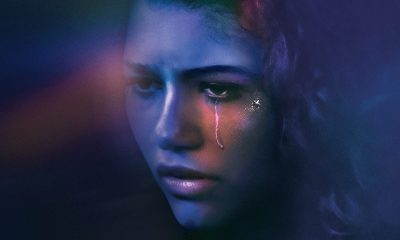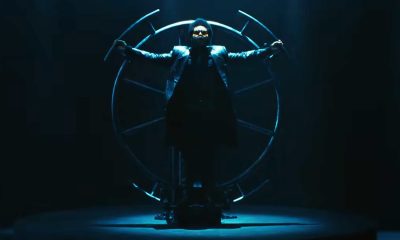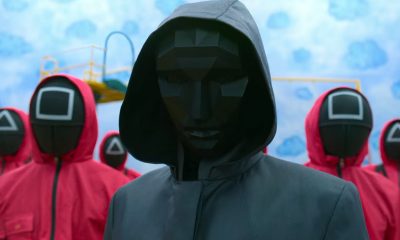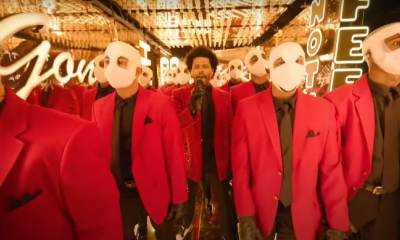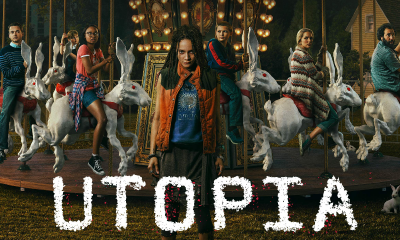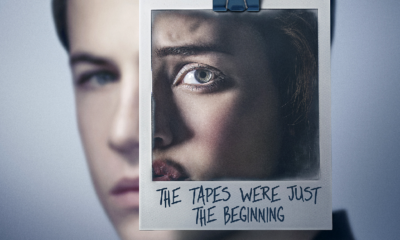Movies and TV
The Hidden Messages in “The Idol” About the Music Industry
The HBO series “The Idol” was reviled by critics for its constant barrage of degrading and unnecessary sex scenes. Also, The Weeknd sported a rattail which was simply uncalled for. However, in a crude and unapologetic matter, “The Idol” actually communicated a clear message: The music industry is replete with sex slaves.
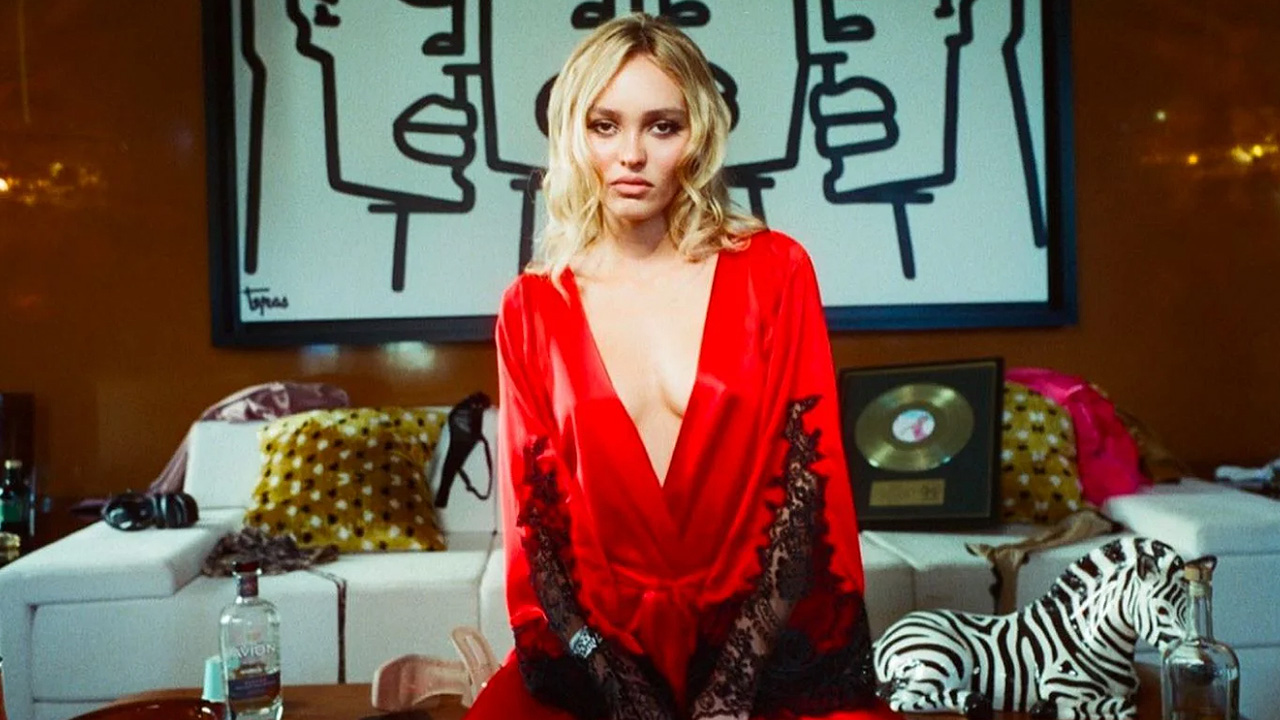
Warning: Colossal spoilers ahead!
Despite the fact that the series received a barrage of terrible reviews, I sat down a watched all five episodes of The Idol. My first impression: The show should have been called Lily-Rose Depp’s Butt in Various Outfits While The Weeknd Gets Increasingly Sweaty and Coked Up.
Not only is this title catchier, it properly reflects what we see for most of the series. There’s indeed a ridiculous amount of close-up shots of Lily-Rose Depp’s barely covered butt during the series, to the point that it becomes just absurd. The analytical part of me wondered: Is there a comment about the music industry in these shots or is it just director Sam Levinson just being the perv that he is?
It’s most likely both. The Idol is about industry slavery as seen by people who actually exploit industry slaves.
Interesting fact: The Idol was originally directed by Amy Seimetz who had already completed about 80% of filming. Judging by various reports, the original version had a much different tone and perspective. However, she was fired and replaced with Sam Levinson who rewrote and refilmed the entire thing. The result: Lily-Rose Depp’s Butt in Various Outfits While TheWeeknd Gets Increasingly Sweaty and Coked Up.
Those who hired Sam Levinson knew exactly what they were getting. The director is mostly known for creating Euphoria, a teen drama that’s just, like, terrible, for so many reasons. In my article about Euphoria, I wondered why a 37-year-old man would dream up and put on film so many extreme sex scenes involving minors. Some commentators answered that Levinson had no ill motives and that he was simply reflecting youth culture.
However, with the release of The Idol, many finally realized that there was something off with this guy.

An article about the bizarre thing that happened during the filming of The Idol.
With Sam Levinson’s version of The Idol, we got a raw reflection of the music industry – as expressed by actual industry insiders. Other than global star The Weeknd, the show features K-Pop star Jennie, super-producer Mike Dean, and several others. However, in the end, The Idol is all about Lily-Rose Depp.
Lily-Rose Depp is The Idol
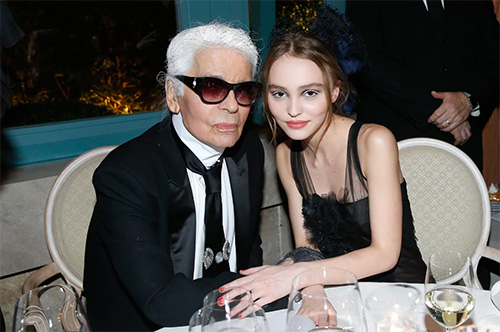
Lily-Rose Depp with fashion industry legend Karl Langfeld.
Lily-Rose Depp is the daughter of American sex symbol Johnny Depp and French sex symbol Vanessa Paradis. Right from an early age, she was groomed to become a sex symbol herself and her parents made sure that she was put in contact with all the right people. While she appeared in a few movies and fashion shows, The Idol was her big break.
At an important point during the series, Lily-Rose Depp’s character tells The Weeknd’s character:
“It’s not about you. It’s about me.”
Not only does this line represents a turning point in the power dynamic between the characters, but it also sums up The Idol as a whole. While The Weeknd is the big wig (literally) behind the show, the series is actually about making Lily-Rose Depp a star.
In many ways, The Idol is reminiscent of Blonde, a movie about Marilyn Monroe’s life and, more precisely, her traumas. As explained in my article about Blonde, the movie is actually about witnessing the lead actress Ana de Armas being subjected to extreme, humiliating, and highly sexual situations. Both Blonde and The Idol were qualified as “torture porn” by angry reviewers while also praising the main actress. In a way, these difficult and borderline degrading lead roles serve as an industry initiation for these actresses.
Like Blonde, The Idol is also a brutally honest reflection of the entertainment industry. The main message: It is full of sex slaves.
Let’s look at this thing.
The Idol
Everything you need to know about The Idol is summed up in the very first shot of the series.
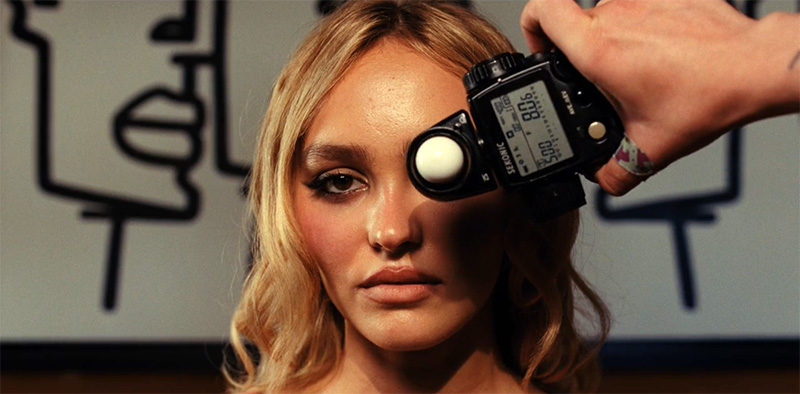
Lily-Rose’s character – named Jocelyn – stares at a camera while a device hides one of her eyes. Yes, there’s a one-eye sign right at the start of the series. The message: This is all about the occult elite and its twisted industry.
We eventually learn that Jocelyn was a child star who had an abusive and controlling mother. The death of her mother caused Jocelyn to have a complete mental breakdown which lead to the cancelation of her tour because she was “out of her mind, babbling up in the roof and talking to things in outer f*cking space”.
In short, that’s a classic MK ULTRA breakdown as experienced by actual industry slaves such as Britney Spears.
So, in the first scene, Jocelyn partakes in a photoshoot which devolves into a debate about her showing her breasts.
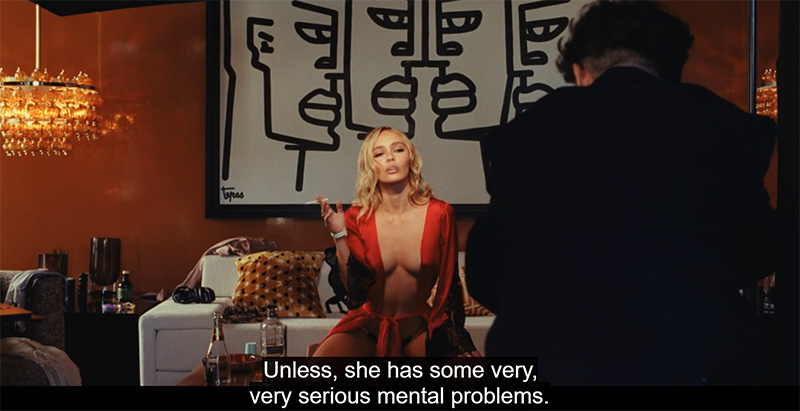
During the shoot, Jocelyn wears a red robe. As we’ll soon see, this character often wears red outfits – the color of sacrifice and initiation in occult elite circles.
In this photoshoot, Jocelyn wears a bizarre but important item: A hospital wristband. Jocelyn’s manager Nikki explains why this thing is part of the photoshoot:
“Mental illness is sexy.”
Nikki argues that a girl like her would never have sex with a regular Joe from Idaho unless she had very serious mental problems. Then, Nikki instructs Jocelyn to show more nails, “like a kitty cat”.
Like a sex kitten.
After the photoshoot, Jocelyn rehearses the choreography of her new single titled World Class Sinner. Of course, everything about her act is pseudo-satanic. It is a music industry requirement.
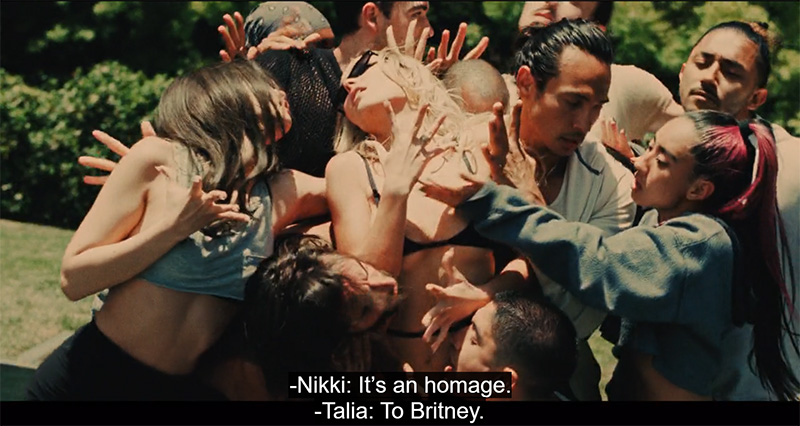
The choreography contains a reference to Britney Spears’ Slave 4 U – the theme song of industry slaves.
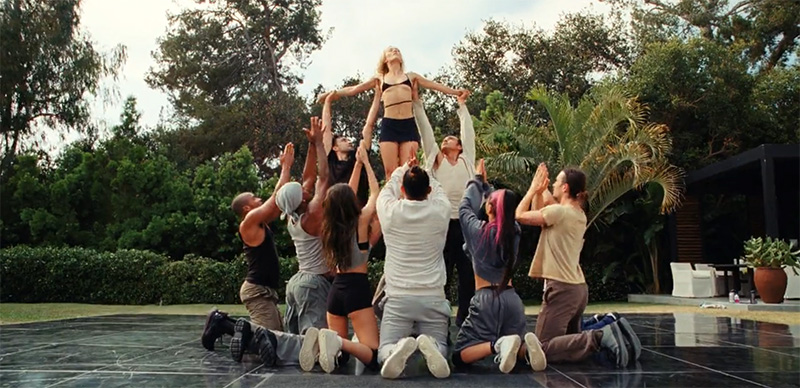
Of course, the choreography of the song called World Class Sinner finds a way to mock Christianity. It’s an industry requirement.
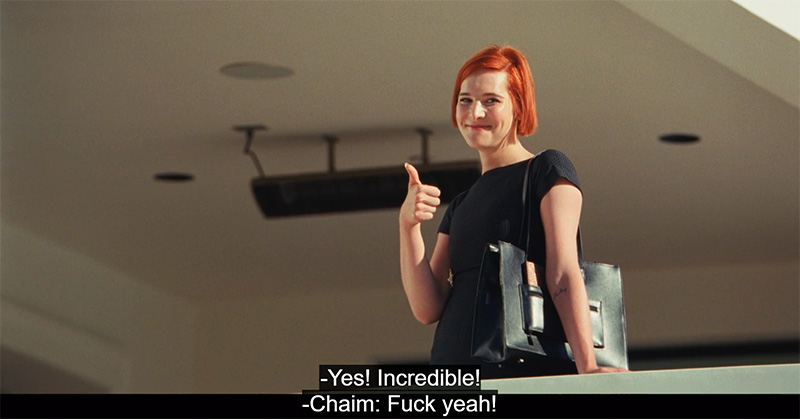
Everybody liked that performance, including Talia the transgender journalist who works for Vanity Fair.
Throughout the series, Talia is a somewhat intimidating figure who has the power to make or break careers. In short, Talia represents “the media” who can spin stories and create narratives.
Conveniently enough, a media crisis surfaces while Talia is around. Jocelyn’s team panics and they immediately discuss ways of spinning the story to their advantage.
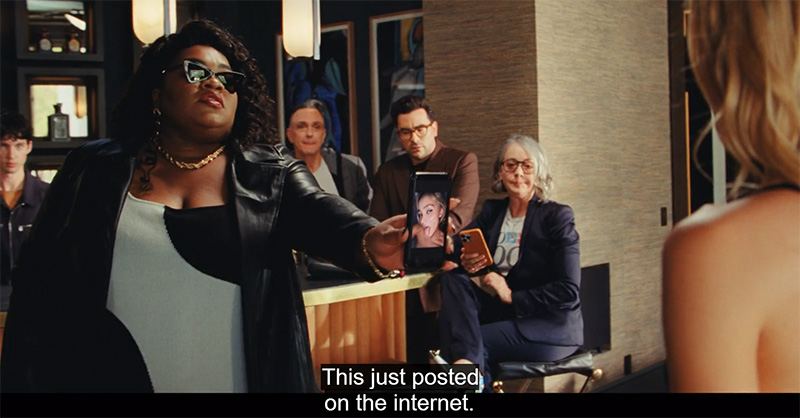
A picture of Jocelyn with sperm on her face has gone viral.
Her manager says:
“How 14-year-old girls are going to buy tickets for this when she’s frosted like a Pop Tart?”
What’s interesting about this line is that, with stars such as The Weeknd and K-Pop star Jennie, the show itself targets young girls. And these viewers are exposed to this rather gross storyline, complete with close-up shots of the picture.
In the context of the story, the picture going viral is a humiliating and traumatizing ordeal that further cements Jocelyn’s status as a Beta Kitten slave. In fact, her managers fear that it’ll lead to her suffering another breakdown.
On a wider scale, the viewers of The Idol saw a picture of Lily-Rose Depp with her face covered in (possibly fake) semen. Was that part of her industry initiation? The fact that her father Johnny Depp enthusiastically supported her performance in this show is rather weird. And, as we’ll see, his daughter we’ll be subjected to a whole lot of under things.
The Handler

Tedros performing some hypnotic, mind-control stuff on Jocelyn.
After a difficult day, Jocelyn goes to a club owned by a rat-tailed guy named Tedros (played by The Weeknd). This place has a clear satanic vibe.
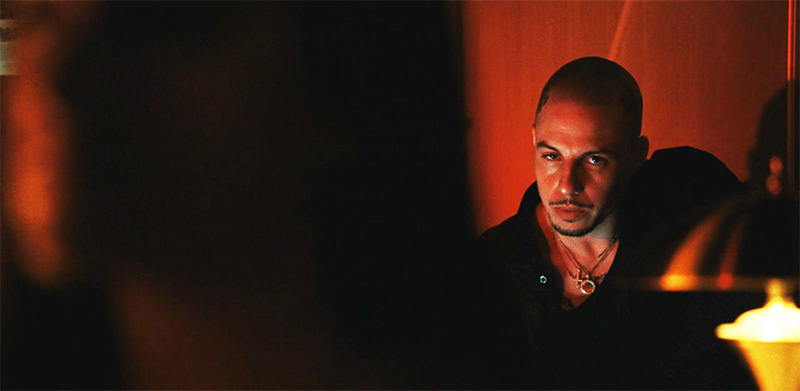
This disciple of Tedros walks around with an inverted cross around his neck. They’re a satanic cult.
While animating the crowd, Tedros says:
“This is a church for all you sinners!”
As Madonna’s Like a Prayer plays in the club (a satanic song), Jocelyn is immediately attracted to Tedros. She cannot resist his sleazy pimp energy.
The next day, Jocelyn invites Tedros to her house. Her assistant doesn’t like that at all. She says:
– I hate his vibe.
– Why?
– He’s so rapey.
– Yeah, I kind of like that about him.
Yes, Jocelyn is messed up. She’s been controlled and abused her entire life and, apparently, she craves more.
When Tedros arrives, Jocelyn descends the stairs dressed in red. They go to Jocelyn’s home studio where Tedros teaches her to “sing like she knows how to f*ck”.

Tedros covers Jocelyn in bright red – the color of sacrifice and initiation. Then, he chokes her while rubbing her privates.
Then Tedros tells Jocelyn:
“Now you know how to sing”.
End of the first episode. And everything about it was 100% Beta Kitten stuff.
In the next episode, we have to sit through countless minutes of Tedros fondling Jocelyn in every way possible while saying things such as:
“I want to grab you by the ass while I suffocate you with my c*ck and I want you to choke on it.”
Bonus fact: While he’s saying this, there’s a 17-year-old girl watching them (more on her later).
These sex scenes are not hot. They’re gross and you want them to end. However, they do cement Tedros as a creepy MK handler. And we soon discover that he’s been grooming a bunch of slaves to be “artists” for a while.
A Bunch of Slaves
Tedros has a knack for finding musical talent. Then he turns them into Beta Kitten slaves.
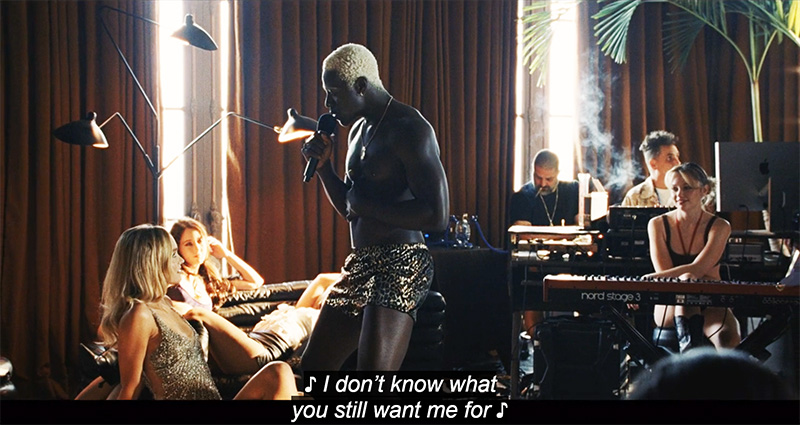
Izaak’s entire act is about making ladies (and men) horny. He’s often dressed in animal prints (used in the occult elite to identify Beta Kitten slaves) and his hair is bleached (also used to identify slaves). In many ways, Izaak is reminiscent of Lil Nas X – a major industry slave.
Another artist in Tedros’ stable is named Chloe. As soon as she appears in the show, she gets completely naked. Then we learn that she’s actually 17 years old (the actress is in her 20s).
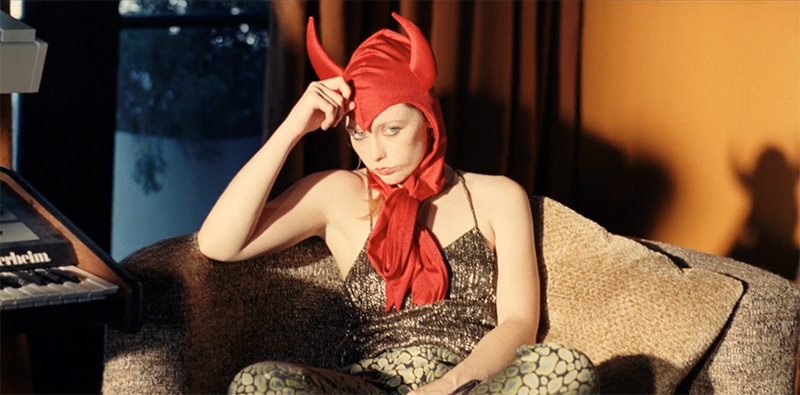
For absolutely no reason, Chloe wears a devil hat at one point. Just satanic things.
If you know a little something about Monarch mind control, you know that electroshocks are used by handlers to cause trauma and dissociation. Tedros does exactly that to his slaves.
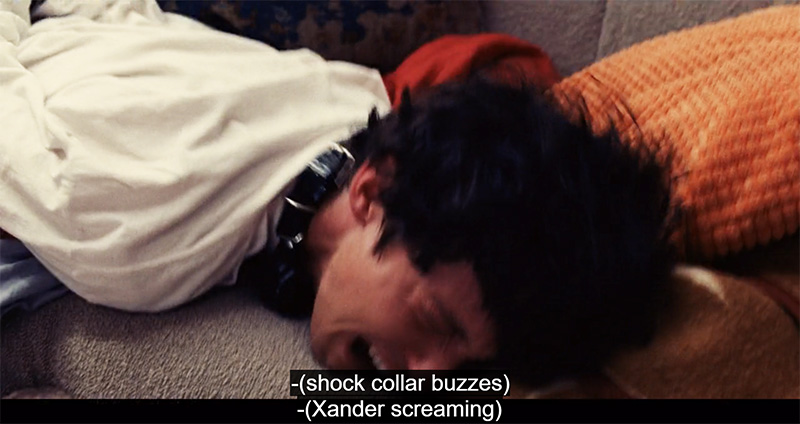
Tedros shocks his disciples while telling them MK handler things such as “You wanna be a star, you gotta push through the pain” and “You’re not human, you’re a f*cking star”.
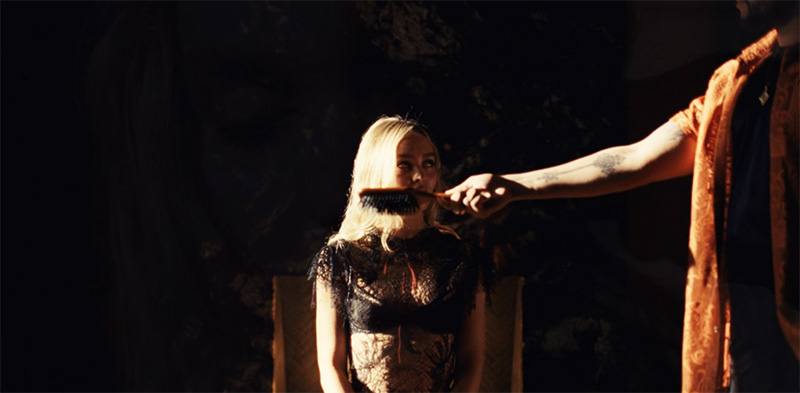
When Jocelyn tells Tedros that her mother used to beat her with a hairbrush, he tells her to go get it. Then, he beats her with it.
He tells her:
“This is really gonna hurt. But if you push through the pain, it’ll be beautiful”.
Typical MK handler stuff.
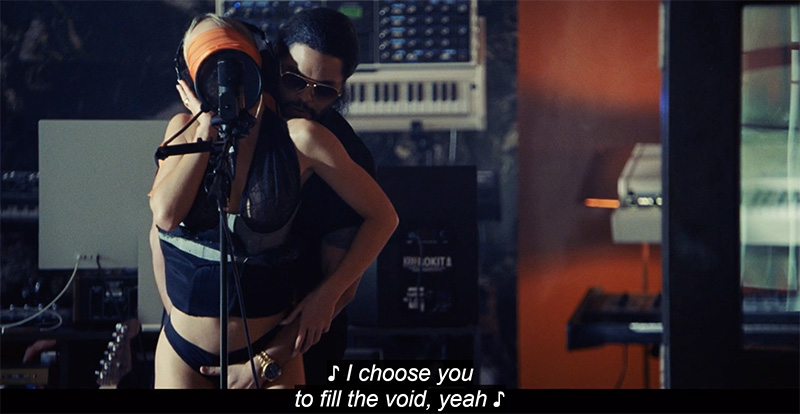
While recording a song, Tedros blindfolds Jocelyn (with symbolic red fabric) and fondles her … in front of a bunch of people. Producer Mike Dean laughs at her. It’s degrading and humiliating. It’s Beta Kitten stuff.
Another clue that this show is about mind control is that they literally say the words “mind control”. At one point Jocelyn’s assistant tells Izaak:
– He’s doing mind control on her or something.
– Mind control?
– Yeah, he’s like using her in front of other people like she’s not even a human being.
– Well, she’s not a human being. She’s a star. And stars belong to the world.
Meanwhile, Jocelyn’s management team is losing it.
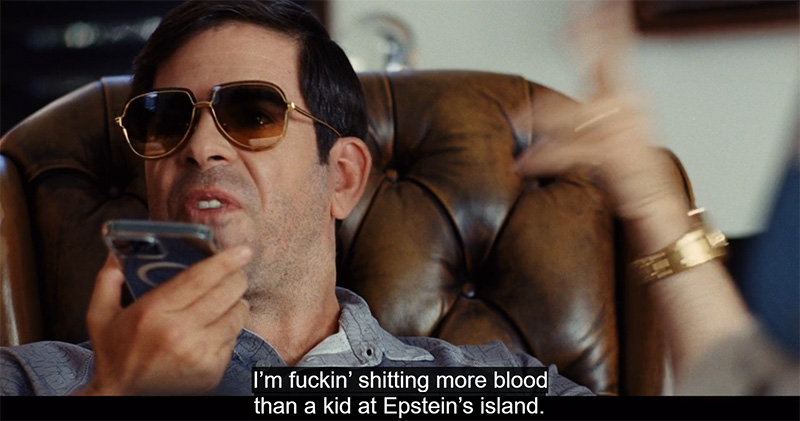
Finklestein is “sh*tting more blood than a kid at Epstein Island”. This edgy joke is also yet another reference to the occult elite’s pedophilic network of MK slaves.
In order to convince her management team to take them on tour, Jocelyn schedules a meeting where she and the other slaves would put on a memorable performance. It was all about sexual slavery.
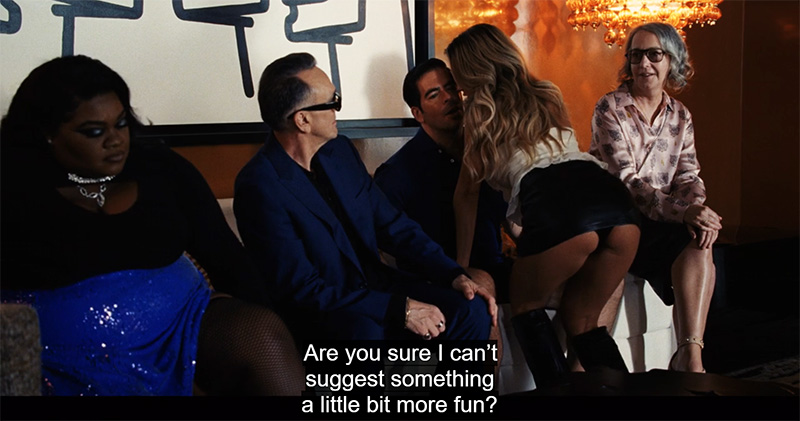
One artist straight-up offers sexual favors to Finklestein.
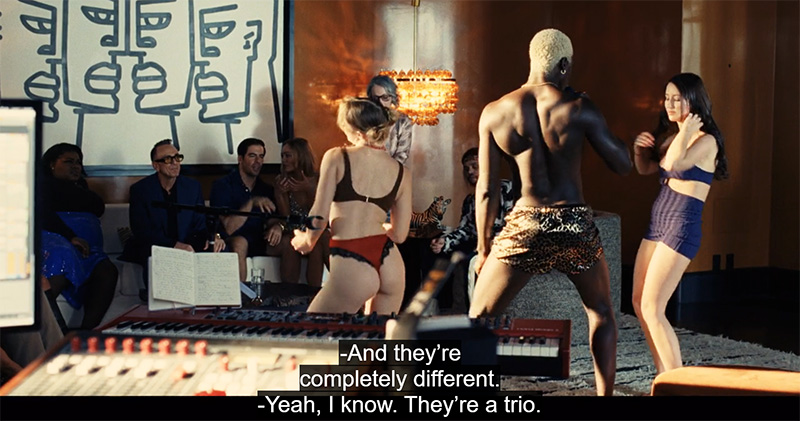
All of the artists (including 17-year-old Chloe) are basically in their underwear. Also, most performances are glorified lap dances.
The performances culminate with Jocelyn performing a song that is mostly her panting and breathing heavily. Here’s a sample of the lyrics she sings:
Lock me up and throw away the key
He knows how to get the best out of me
I’m no force for the world to see
Trade my whole life just to be
Top of the world, but I’m still not free
This is a secret that I keep
Until it’s gone, I can never find peace
Waste my whole life just to be
Could this be more about industry slavery?
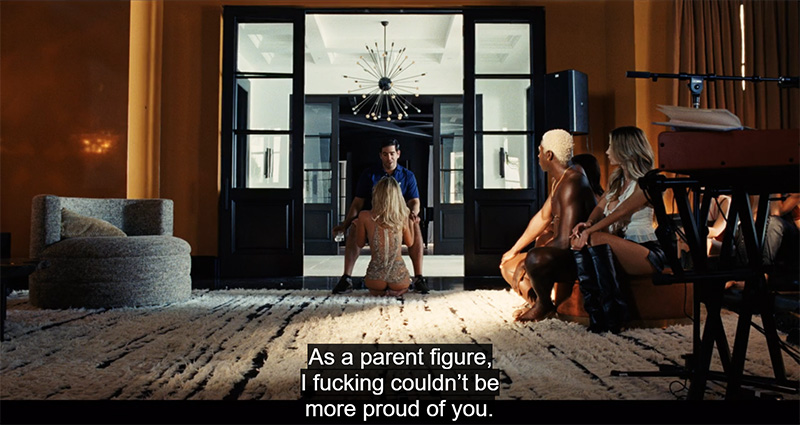
Jocelyn’s performance ends with her kneeling in front of Finklestein as if she was about to pleasure him. The fact that he refers to himself as a “parent figure” while she’s in this position is rather weird.
Needless to say, the managers were happy and impressed. Because, in The Idol, good music is directly linked to sex.
The series ends by implying that Jocelyn was actually using Tedros to good music from her. Nevertheless, they end up together but Jocelyn is now the dominant one. Thus ends one of the stupidest love stories of all time. But that really wasn’t the point of this series.
In Conclusion
The Idol is an annoying and cringy show that I will never watch again. On the other hand, it is one of the most brutally honest depictions of the music industry seen on TV, as expressed by people who know about it firsthand. Throughout the series, success in the industry is equated with unquestioned obedience to handlers, combined with sadistic torture and extreme sexual acts.
However, none of this is actually denounced. In fact, Tedros, the MK handler in the series, ends up being depicted as a genius who knew how to bring out the best in his artists … by electroshocking them and so forth.
In short, The Idol normalizes the sad, sick, and twisted nature of the music industry that reduces artists to sex slaves who are used to please the higher-ups of the industry. At the center of it all is Lily-Rose Depp who, throughout these five episodes, is treated as a sex object for all to see. And the industry will most likely reward her for that.
- LA Fire Attack Map is identical to the LA Smart City Rail Map
- Birds of a feather flock together …
- Etsy and pizza subliminal
- Dwayne "The Rock" Johnson for Vanity Fair (circa November 2021)
- Sade 2010
- UK Plan to 'UNLEASH AI'
- TikTok video shows links to Elon's "everything" app and the mark of the beast system.
Get an e-mail notification as soon as a new article is published on The Vigilant Citizen.
-

 Movies and TV2 months ago
Movies and TV2 months agoAdrenochrome and Ritual Humiliation: The True Meaning of the Movie “The Substance”
-

 Pics of the Month3 months ago
Pics of the Month3 months agoSymbolic Pics of the Month 10/24
-

 Latest News2 months ago
Latest News2 months agoKamala’s Campaign Was Objectively the Worst in Recent History
-
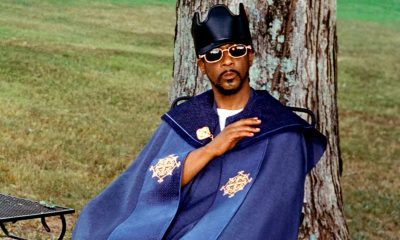
 Pics of the Month1 month ago
Pics of the Month1 month agoSymbolic Pics of the Month 12/24
-

 Latest News2 months ago
Latest News2 months agoWas the Jake Paul vs Mike Tyson Fight a Humiliation Ritual?
-

 Latest News3 months ago
Latest News3 months agoAn “Urban Opera” in Toulouse Using Massive Machines is Denounced as a Satanic Ritual
-
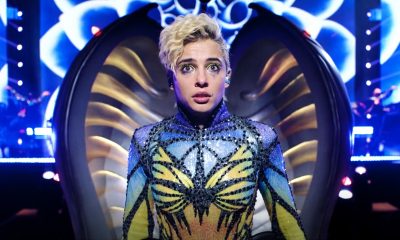
 Movies and TV1 month ago
Movies and TV1 month agoThe Hidden Meaning of “Smile 2”: It’s About Monarch Mind Control
-

 Latest News1 month ago
Latest News1 month agoIt Was Bound to Happen: Jay-Z Accused of Abusing a 13-Year-Old Girl






